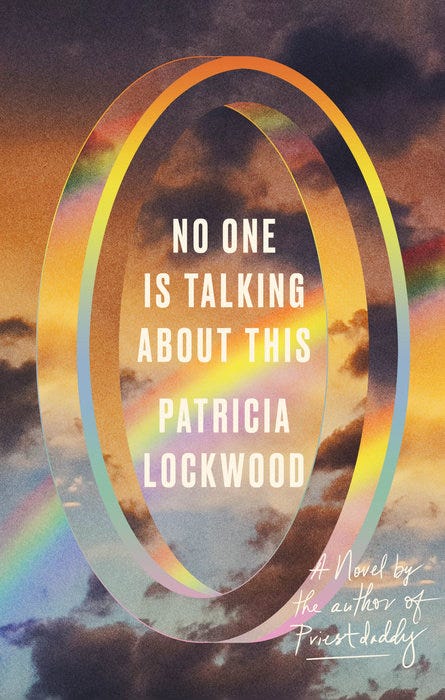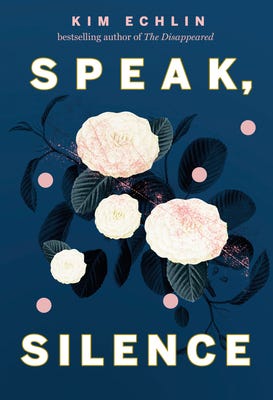Book Reviews
Reviews of books by Malcolm Gladwell (Paul Simon), Patricia Lockwood, Kim Echlin, and Desmond Cole
Miracle and Wonder: Conversations with Paul Simon
by Malcolm Gladwell
2021
I know this is a Malcolm Gladwell book, but is anyone reading this for Malcolm Gladwell? No! I certainly wasn’t. I downloaded the audiobook and felt it was full of miracle and wonder, such a privilege to spend hours in the company of Paul Simon. Not that Gladwell doesn’t deserve some credit for structuring the conversation and interjecting with some interesting interpretations—which I don’t quarrel with. But I will always think of this as a Paul Simon experience.
Let’s start by giving Gladwell his due. He positions Simon as a Brooklyn boy, both absorbing multiple cultures in his childhood and internalizing the sweetest of American ideals, that one can do anything and be anybody. This is not how I had thought of Paul Simon, though of course I knew he’d done Graceland in the 1980s when going to South Africa was verboten. I’d thought of him then as both naïve and brave, and after listening to this book that conclusion remains. But it’s expanded, too.
At one point Gladwell asks Simon if in the early 60s he’d thought of himself as a folk singer. “No,” Simon says. Gladwell can’t hardly believe it. He asks again. Simon again says, “No.” Emphatic. Then he expands. The folkies never would have accepted anyone like him. A Jew from Brooklyn, though they accepted Bob Dylan, a Jew from Minnesota, because he blew in with a different mythology, he was the new Woodie Guthrie. Simon worked in folk traditions, but he worked in all traditions.
One interesting story is how Simon was interested in medieval music and went to England to record some stuff with the best musicians working in that field. It produced nothing, but when asked if that was a failure Simon said, no, it wasn’t, nothing is wasted, he learned something. I’d never realized how perpetually restless Simon was, how restless he remains, or how widely his musical influences spread.
Congratulations to Gladwell for going deep, deep, deep with Simon. These recordings will be the go-to resource for years to come.
*
No One is Talking About This
by Patricia Lockwood
2021
The ironic thing about No One is Talking About This is that many people are talking about it. The New York Times named it one of the best 10 books of 2021. It is certainly a book that responds to its time, crafting a voice that positions internet addiction as the primary mode of consciousness.
The line between what is real and what is mediated and/or imagined is repeatedly questioned.
What does it mean to live like this? the book forces us to ask. Then, in the second half of the book, the really real intervenes, the narrator’s sister gives birth to a severely disabled child, one unable to reach its first birthday. The attraction of memes fades rapidly.
How is it as a book? In many ways, conception and execution, brilliant. In other ways, well, one wonders if the book has much sense memory. Where the internet happens, if it happens at all, is in the mind, and the reflections on the internet are, by necessity, abstract. Writing teachers tell students to include sensory details. What are the characters smelling, feeling, tasting?
This book has little of that. Will it, therefore, fade more easily from memory? What images will dominate or linger? The baby, for sure. Anything else?
Likely the sense that behind it all is a sparkling intelligence.
Speak, Silence
by Kim Echlin
2021
This winner of the 2021 Toronto Book Award is a gut wrenching exploration of the use of rape as a weapon of war and attempts to bring the perpetrators to justice. It is a novel based on real events in the Bosnian war, 1992-1995, and real legal victory later in The Hague of prosecuting rape as a war crime.
The story, though, is of a Toronto journalist who had a child with a Yugoslav playwright whom she hasn’t seen in over a decade (and whom their daughter has never seen) returning to Europe and confronting the consequences of a horrifically violent era.
The story of the journalist becomes a gateway to the stories of the women raped during the war, who are in The Hague to speak at a war crimes trial. Rape had previously never been successfully prosecuted as a war crime. This time it is. The stories they tell are graphic and gut-wrenching.
The journalist hooks up with her old flame, and others, but does not convince him to return with her to Toronto to see their daughter, who is desperate to meet him. Spoiler: The book ends with this loop still open, setting up a possible sequel? Relationships are complicated. Oi.
The Skin We're in
by Desmond Cole
2020
Before I read Desmond Cole’s essential book, The Skin We’re In, I watched on CBC GEM the essential documentary of the same name by filmmaker Charles Officer, featuring Cole. (I knew Officer in childhood, but that's another story.) I have more recently read the award-winning 2015 Toronto Life article, “The skin I’m in,” which first brought Cole wide ranging, well-deserved public consciousness.
The broadest possible audience for Cole’s work is well-earned. The book and the documentary are good places to start.
The Skin We’re In, the book, is Cole’s reporting on 2017, which the book’s subtitle calls “A year of Black resistance and power.” One hopes it is a year of an era of raised awareness, shifting consciousness, and ultimately change leading to a reduction—surely, elimination—of anti-Black racism.
I would not say that Cole is hopeful on that score. He is too aware of the barriers to change, the institutional power of the status quo in too many settings: police, government, media. Cole takes 2017 month by month, heartbreaking story by heartbreaking story. One is exhausted as a reader and can only wonder at Cole’s fortitude.
Cole is both journalist and activist. The journalist reports the facts and cites the evidence; the activist brims with righteous outrage. At the end of the year, the year ends. There is no easy resolution for the injustices told. What persists is the book—and the challenge to change the future.







